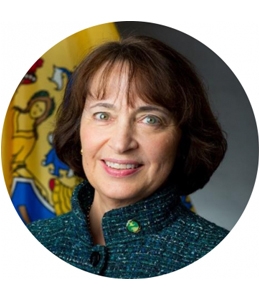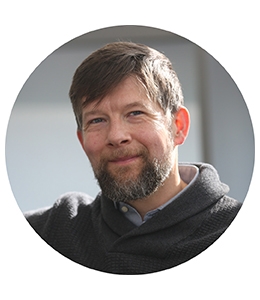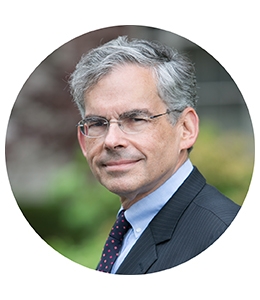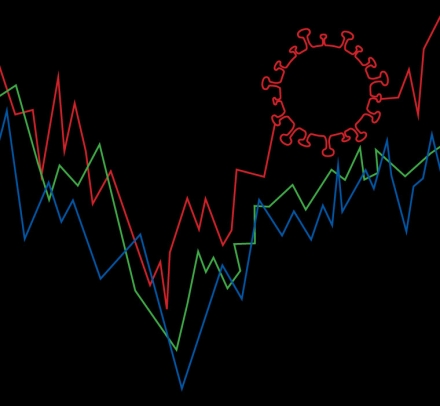Defending the Planet: The Biden Reset
In the first episode of Columbia Law School’s new limited-series podcast—hosted by Professor Michael B. Gerrard—former EPA administrator Catherine McCabe ’77 and Professor Jedediah S. Purdy discuss the Biden administration’s plan to restart U.S. efforts to combat climate change.

Hours after taking the oath of office, President Joe Biden signed executive orders to return the United States to the Paris climate agreement and kill the Keystone XL pipeline. He has since revoked many of the Trump administration’s climate policies while launching an aggressive regulatory program of his own. His goals include cutting U.S. greenhouse gas emissions in half by 2030 and reaching net zero emissions by 2050. He also wants to put the U.S. back into a position of international leadership on climate issues. But are these goals realistic with a Congress that hasn’t passed major environmental legislation since 1990?
Former top EPA official Catherine McCabe ’77 and William S. Beinecke Professor of Law Jedediah S. Purdy join Michael B. Gerrard to explore how the partisan divide holds back the fight against global warming and whether executive action can break the long drought of climate legislation. Download the transcript here.
Stay tuned for new episodes of Defending the Planet. Subscribe on Apple, Spotify, or wherever you get your podcasts and learn more about the series.
Meet the Experts
Catherine McCabe ’77 has served as an environmental attorney and government executive at the federal and state levels, including the U.S. Department of Justice, the U.S. Environmental Protection Agency, the New Jersey Department of Environmental Protection (NJDEP), and the New York State Attorney General’s Office. As commissioner of the NJDEP under Governor Phil Murphy from 2018 to January 2021, McCabe led initiatives to reduce greenhouse gas emissions, build resilience to climate change, revitalize water infrastructure, prevent contamination of drinking water with lead and emerging chemical contaminants, and promote environmental justice.
McCabe served in several high-level positions in the U.S. Environmental Protection Agency (EPA) from 2005 to 2018. She was the principal deputy assistant administrator of the Office of Enforcement and Compliance Assurance, an administrative appellate judge on the EPA’s Environmental Appeals Board, and deputy regional administrator of the EPA’s Region 2. She served as the acting administrator of EPA in early 2017 and then as acting regional administrator of EPA Region 2 until late 2017. She has held several positions in the Environment and Natural Resources Division of the U.S. Department of Justice, where she played a leading role in the development of early case law, legislation, and government policies under the Comprehensive Environmental Response, Compensation, and Liability Act.
“There’s a fair amount that [Biden] cannot do without Congress. And probably one of the most important things is appropriate money. It takes our Congress to do that.” —Catherine McCabe ’77
Jedediah S. Purdy, William S. Beinecke Professor of Law, joined the Columbia Law School faculty in 2019 after 15 years at Duke Law School. He teaches and writes about environmental, property, and constitutional law as well as legal and political theory.
Purdy’s most recent book, This Land Is Our Land: The Struggle for a New Commonwealth, explores how the land has historically united and divided Americans, shows how environmental politics has always been closely connected with issues of distribution and justice, and describes humanity as an “infrastructure species.” His other books include After Nature: A Politics for the Anthropocene; For Common Things: Irony, Trust, and Commitment in America Today; The Meaning of Property: Freedom, Community and the Legal Imagination; and A Tolerable Anarchy: Rebels, Reactionaries, and the Making of American Freedom. His legal scholarship has appeared in the Yale Law Journal, Harvard Law Review, University of Chicago Law Review, Duke Law Journal, Cornell Law Review, Nomos, and Ecology Law Quarterly, among others. He has published essays in The Atlantic Monthly, The New York Times, The New Yorker, Die Zeit, and Democracy Journal; is contributing editor of The American Prospect; and serves on the editorial board of Dissent.
“You need both to find ways to make policy that does the right things and to find ways to make policy that makes the right politics.” —Jedediah S. Purdy
Michael B. Gerrard, Andrew Sabin Professor of Professional Practice, is the founder and faculty director of the Sabin Center for Climate Change Law. He writes and teaches courses on environmental law, climate change law, and energy regulation. He was the chair of the faculty of Columbia University’s Earth Institute from 2015 to 2018.
Before joining the Columbia Law School faculty in 2009, Gerrard practiced as the partner in charge of the New York office of Arnold & Porter Kaye Scholer, where he remains senior counsel. As an environmental lawyer, he tried cases and argued appeals in federal and state courts and administrative tribunals. Gerrard has written or edited more than a dozen books, including Global Climate Change and U.S. Law, the first and leading work in its field (co-edited with Jody Freeman). He is the former chair of the American Bar Association’s Section of Environment, Energy, and Resources. He also has chaired the New York State Bar Association’s environmental law section.
“The U.S. Republican Party is the only major party in the world which has climate denial as a core element of their platform.” —Michael B. Gerrard




